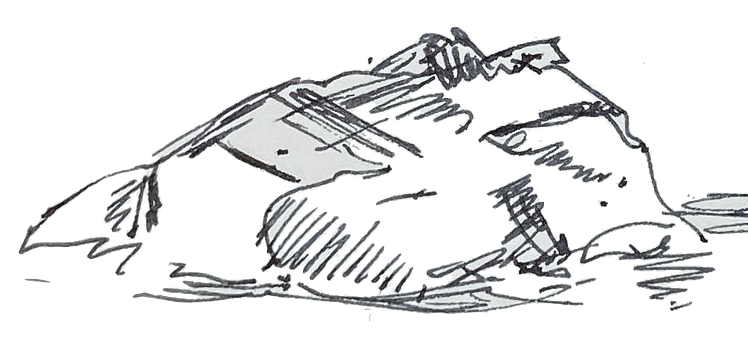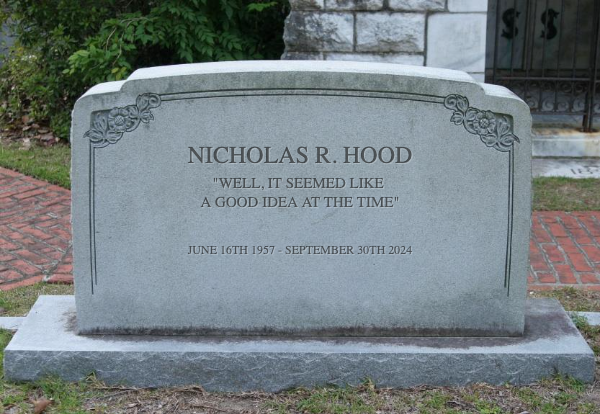Chess
My father bought me my first chess set as he left, never to return. Knowing what I know of him, he will have been as bad as I am at the game. My mother told me that he would not laugh at the Master Sergeant’s jokes, so when he did get promoted, it was never for long. Like him, I suspect, I have played situations at face value: dealt with the immediate situation rather than thinking more strategically to meet sometimes unstated expectations. Why laugh, if the joke’s not funny? It seems, it depends on who is telling the joke.
This image is another AI rendering from hotpot.ai, with the simple prompt, “outwitted and beaten”. It recalls for me the feeling of situations I have been in during various careers, where my individual focus on straightforward solutions, based on the presented information and logic, sometimes resulted in praise and promotion, but occasionally in being made to feel foolish or naïve.
It’s a way of thinking, isn’t it? I often find myself trying to step through a problem, like a machine flicking from one state to the next in response to each new input condition. “If this, then that”. I have had rare hints about the flaws with this way of thinking. Peter Meachem, a senior engineer, was chatting to another colleague as he was watching me type FORTRAN code into a terminal. Here is something like what I typed:
IF (LHXTRIP .EQ. FALSE) THEN
LHXTRIP = TRUE
END IFThis may look OK to you, as it did to me at the time. However, it was Goon-Show hilarious. The code block, although syntactically and logically correct, is wasteful of computing cycles and time, something to be avoided in a real-time system. Better, is this:
LHXTRIP = TRUEThere’s no need to test the trip flag state if you want it set. I was too close to the flow of logic to see it. Peter did me a huge favour when he roared with laughter and just about fell off his chair. Yes, he might have been kinder about it but I have never forgotten that lesson, and looked for efficiency and elegance in my code ever since then, thanks to him. Despite this lesson, I have remained more an “answer the question you’re asked” kind of person, rather than one who interprets the question to advance his own particular interests.
During a seminar recently, a slide was presented with something like this:
in order to navigate a complex system, strategic thinking is required
I felt all “outwitted and beaten” again when that sank in. It has taken me half a century of working life to realise what some of these people have been doing, instead of focusing on solving the presented problems or getting on with the job. No wonder I am terrible at chess. No wonder lots of things I am remembering.
Flashback to 1974. I am in the office of Don Taylor, manager of the Sales Department at Jones Cranes in Letchworth, where I had been working as a Sales Liaison officer. Don was a master of the double-declutch and drove his Avenger like a rally driver on trips cross-country to the Aylesbury plant. He had just negotiated for me a nice fat pay rise and I had just handed him my resignation. He was very, very angry, and called me things you can’t call people in the post-COVID working environment. Everyone is too fragile for that. “Do you want to know your future, Nick?”, he shouted. “I’ll tell you.” Here it is, as I recall it.
It is night time and raining. Walking past a railway archway, you hear muttering. Curious, you approach cautiously but see no-one. There are piles of cardboard and rags on the narrow verge, soaking in the rivers of rainwater running along the roadway. Still, the voice, muttering, incoherently. Moving closer, one of the piles shifts slightly, and the voice shouts. “Bastards!”, it calls. Pausing, you hear more, noticing the stench of sweat and what? Is that meths? The voice goes on, “I f*cking showed them. I SHOWED THEM. Bastards. I f*cking showed them.”
Don again. “That’s you, that is. That’s your future.”
Well, maybe it will be. Maybe strategic thinking would have set me on different paths to the ones I have taken, but here I am, anyway. I have time to start from here, and take my new strategic thinking with me in my toolbox to wherever I go. I do wonder, though, if being clever is all a bit too neo-liberal for me. Increasingly, I am seeing the world more clearly and I do recognise that it is complex, but it doesn’t follow that you shouldn’t still work on principle, on logic and try to do the right thing.
I am grateful to Peter, and to Don, and to all of those who have tried to help me do the right things. Another person who forecast my future, my dear mother, said that she knew what would be engraved on my headstone: Well, it seemed like a good idea at the time.


